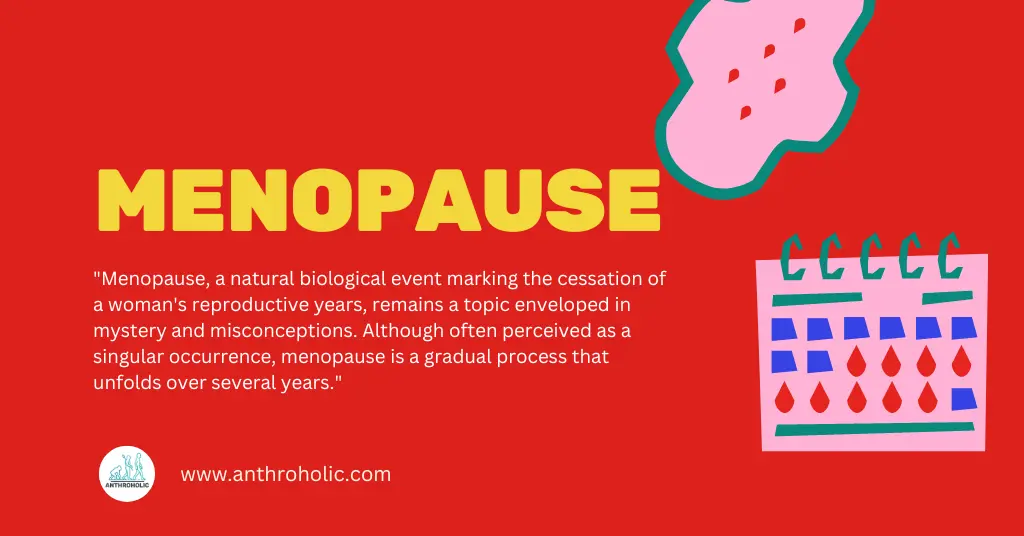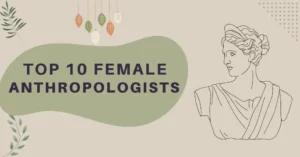AI Answer Evaluation Platform Live Now. Try Free Answer Evaluation Now
Menopause
Menopause, a natural biological event marking the cessation of a woman’s reproductive years, remains a topic enveloped in mystery and misconceptions. Although often perceived as a singular occurrence, menopause is a gradual process that unfolds over several years.

Understanding Menopause
Menopause is defined as the permanent cessation of menstruation, which typically occurs between the ages of 45 and 55. Menopause is divided into three stages:
- Perimenopause: The period leading up to menopause, characterized by hormonal fluctuations and irregular menstrual cycles. This stage may last up to 10 years.
- Menopause: The point at which a woman has not had a menstrual period for 12 consecutive months.
- Postmenopause: The years following menopause, marked by the completion of the menopausal transition [1].
Hormonal Changes
The primary hormones involved in menopause are:
- Estrogen: A hormone responsible for the development and regulation of the female reproductive system.
- Progesterone: A hormone that helps regulate the menstrual cycle and prepares the body for pregnancy.
During menopause, the levels of these hormones decrease, leading to various physical and emotional symptoms.
| Hormone | Pre-menopause Levels | Menopause Levels | Post-menopause Levels |
|---|---|---|---|
| Estrogen | High | Fluctuating | Low |
| Progesterone | High | Fluctuating | Low |
Symptoms and Complications
- Physical Symptoms: Hot flashes, night sweats, vaginal dryness, weight gain, and sleep disturbances are common physical symptoms of menopause.
- Emotional Symptoms: Mood swings, irritability, anxiety, and depression may arise as a result of hormonal changes during menopause.
- Complications: Menopause can lead to a higher risk of osteoporosis, heart disease, and certain types of cancer.
Debunking Myths and Misconceptions
Menopause is an Illness
Menopause is not an illness, but rather a natural biological process that every woman experiences. While it can be accompanied by uncomfortable symptoms, it is essential to recognize that menopause is a normal part of aging.
All Women Experience Severe Symptoms
While many women experience symptoms such as hot flashes and mood swings, the severity and duration of these symptoms can vary significantly. Some women may experience only mild discomfort, while others may require medical intervention to manage their symptoms effectively.
Hormone Replacement Therapy is Unsafe
Hormone replacement therapy (HRT) has been a controversial topic in recent years due to potential health risks. However, for many women, HRT is a safe and effective treatment option when prescribed and monitored by a healthcare professional.
Coping with Menopause
A. Lifestyle Adjustments
- Diet: Consuming a balanced diet rich in fruits, vegetables, whole grains, lean proteins, and healthy fats can help manage menopausal symptoms and reduce the risk of complications (North American Menopause Society [NAMS], 2020).
- Exercise: Engaging in regular physical activity can improve mood, increase energy levels, and maintain bone density during menopause.
- Stress Management: Implementing stress-reduction techniques, such as meditation, deep breathing exercises, and yoga, can help alleviate menopausal symptoms.
B. Medical Interventions
- Hormone Replacement Therapy (HRT): HRT can be an effective treatment option for women experiencing severe menopausal symptoms.
- Non-hormonal Medications: Certain medications, such as antidepressants, can be prescribed to help manage specific menopausal symptoms, like hot flashes and mood swings.
- Alternative Therapies: Some women find relief through alternative therapies, such as acupuncture, herbal supplements, or chiropractic care.
C. Emotional Support
- Psychotherapy: Counseling or therapy can help women navigate the emotional challenges of menopause and provide coping strategies for managing symptoms.
- Support Groups: Joining a menopause support group can provide a sense of community and shared understanding during this transitional phase.
- Education: Learning about menopause, its symptoms, and treatment options can empower women to make informed decisions about their health and well-being.
Menopause and Society
A. The Societal Stigma of Menopause
Menopause is often stigmatized and misunderstood in many cultures, leading to feelings of shame and isolation for women experiencing this natural life phase. Increased awareness and open conversations about menopause can help reduce this stigma and promote understanding and support.
B. The Impact of Menopause on Relationships
Menopause can affect various aspects of a woman’s relationships, including her intimate relationships, friendships, and professional connections. Open communication and understanding from partners, friends, and colleagues can help women navigate this transition more smoothly.
C. The Role of Healthcare Professionals
Healthcare professionals play a critical role in providing accurate information, support, and medical interventions for women experiencing menopause. Clinicians should be well-versed in menopause-related issues and be proactive in addressing their patients’ concerns and needs.
Future Research Directions
- Long-term Effects of Menopause: While much is known about the immediate symptoms and health risks associated with menopause, further research is needed to explore the long-term effects of menopause on women’s overall health and well-being.
- Personalized Treatment Approaches: Given the individual variability in menopausal symptoms and experiences, future research should focus on developing personalized treatment approaches tailored to each woman’s unique needs and preferences.
- Alternative Therapies: As the demand for alternative therapies in managing menopausal symptoms grows, further investigation into the safety and efficacy of these treatments is warranted.
The Importance of Menopause Education
- Educating Women: Empowering women with knowledge about menopause can help them make informed decisions about their health and well-being. Comprehensive menopause education should be incorporated into women’s healthcare from an early age, preparing them for this natural transition.
- Educating Partners and Family Members: Educating partners and family members about menopause can foster a supportive environment and promote open communication during this transition. This understanding can help maintain healthy relationships and provide emotional support for women experiencing menopause.
- Educating Healthcare Professionals: Continued education for healthcare professionals is essential to ensure they are equipped with the most current information and best practices in menopause management. This knowledge can help clinicians provide optimal care and support for their patients navigating menopause.
The Role of Media and Popular Culture
- Media Representation of Menopause: The portrayal of menopause in media and popular culture can significantly influence societal attitudes and perceptions. Unfortunately, media representation of menopause is often negative, limited, or nonexistent, perpetuating stigmas and misconceptions. Encouraging accurate and diverse portrayals of menopause in media can help raise awareness and foster a more inclusive and empathetic understanding of this natural life phase.
- Menopause Advocates and Role Models: Public figures who openly discuss their menopausal experiences can serve as role models and advocates for women navigating this transition. By sharing their stories, these individuals can help normalize menopause, challenge societal stigmas, and inspire conversations about this often-taboo subject.
- Media and Educational Campaigns: Media campaigns and educational initiatives can be instrumental in disseminating accurate information about menopause and promoting a more inclusive understanding of this life phase. By leveraging various media platforms, these campaigns can reach diverse audiences and create meaningful conversations about menopause and its implications.
The Impact of Menopause on Career and Workplace Dynamics
- The Challenges of Menopause in the Workplace: Menopause can present unique challenges for women in the workplace, including physical symptoms, emotional fluctuations, and difficulties concentrating. As the workforce ages and more women continue to work through menopause, it is crucial to recognize and address these challenges to create supportive work environments.
- Workplace Policies and Accommodations: Employers can support women experiencing menopause by implementing policies and accommodations tailored to their needs, such as flexible work schedules, temperature-controlled workspaces, and access to private rest areas. By fostering an inclusive and understanding work environment, employers can help retain and empower their female workforce.
- Menopause Education and Training for Managers: Educating managers and supervisors about menopause can help them better understand and support their employees during this transition. This education can help promote empathy, reduce misconceptions, and contribute to a more inclusive workplace culture.
Conclusion
In summary, menopause is an intricate and multifarious life event that warrants a comprehensive and empathetic understanding. By cultivating awareness through education, media representation, and workplace initiatives, we can create a more supportive and inclusive environment for women experiencing menopause. Continued research and exploration of menopause will enhance our knowledge, enabling us to develop personalized treatments and strategies for navigating this natural phase of life.
References
[1] Santoro, N. (2016). Perimenopause: From research to practice. Journal of Women’s Health, 25(4), 332-339. doi: 10.1089/jwh.2015.0498
[2] Avis, N. E., & Crawford, S. L. (2008). Cultural differences in symptoms and attitudes toward menopause. Menopause Management, 17(5), 8-13.
[3] North American Menopause Society. (2020). Menopause FAQs: Your health after menopause. https://www.menopause.org/for-women/expert-answers-to-frequently-asked-questions-about-menopause/menopause-symptoms-faqs



